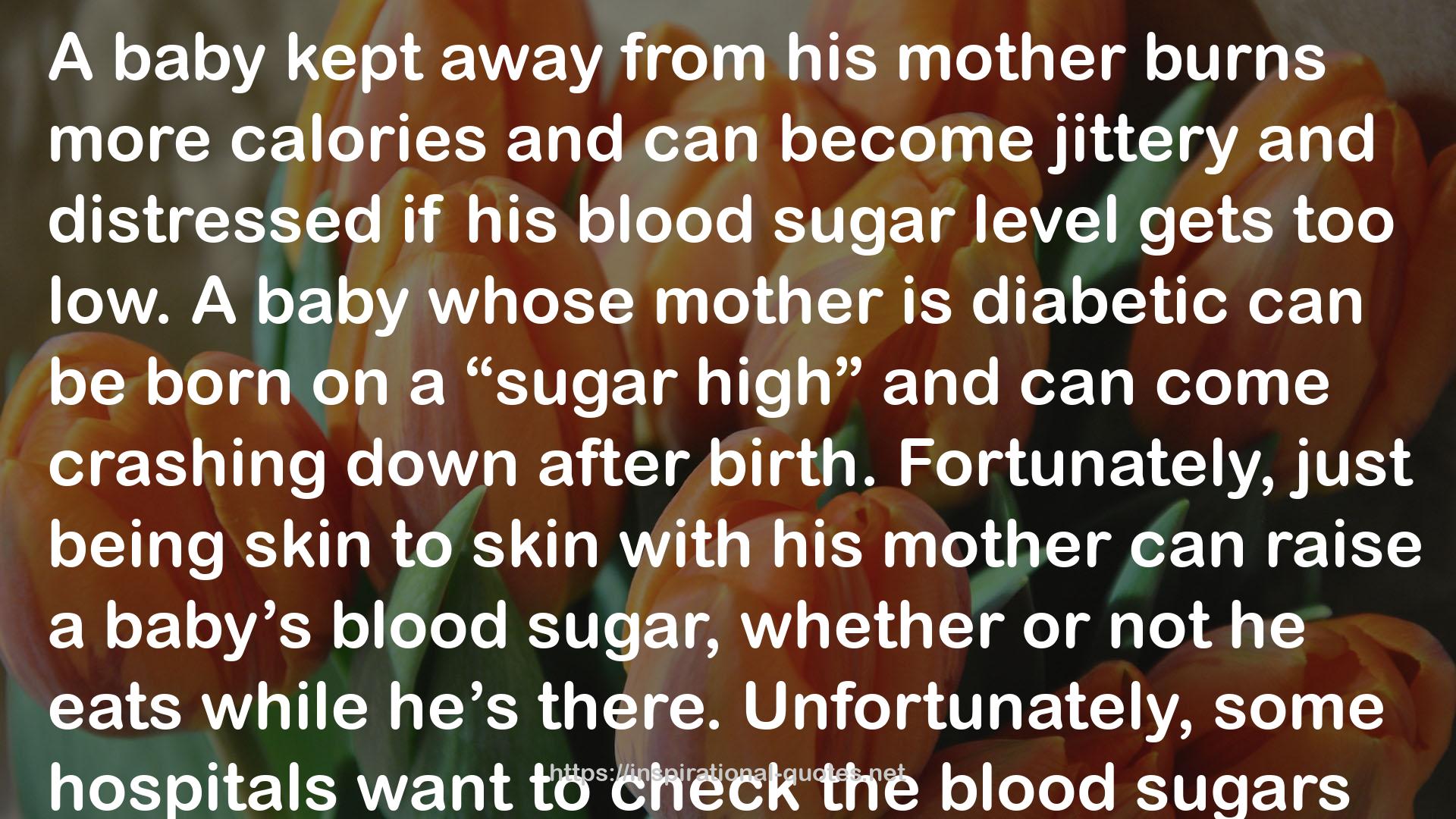" A baby kept away from his mother burns more calories and can become jittery and distressed if his blood sugar level gets too low. A baby whose mother is diabetic can be born on a “sugar high” and can come crashing down after birth. Fortunately, just being skin to skin with his mother can raise a baby’s blood sugar, whether or not he eats while he’s there. Unfortunately, some hospitals want to check the blood sugars of all babies, especially those designated as “large,” whether they show symptoms or not, and have thresholds below which they’ll want to supplement, whether or not there are symptoms. What You Can Do The Academy of Breastfeeding Medicine has a thorough, research-based protocol at bfmed.org that you can share with your doctors if needed. Some of its main points:
Breastfeeding within the first hour after birth is important. Babies with no risk factors or symptoms should not be tested. At-risk babies should be screened until their blood sugar normalizes. There is no evidence that hypoglycemic infants who show no symptoms should be treated.
If supplements are needed, the preferred order is the mother’s own milk, donor human milk, elemental formulas, and partially hydrolyzed formulas. Standard formula is the least desirable option. "
― La Leche League International , The Womanly Art of Breastfeeding
